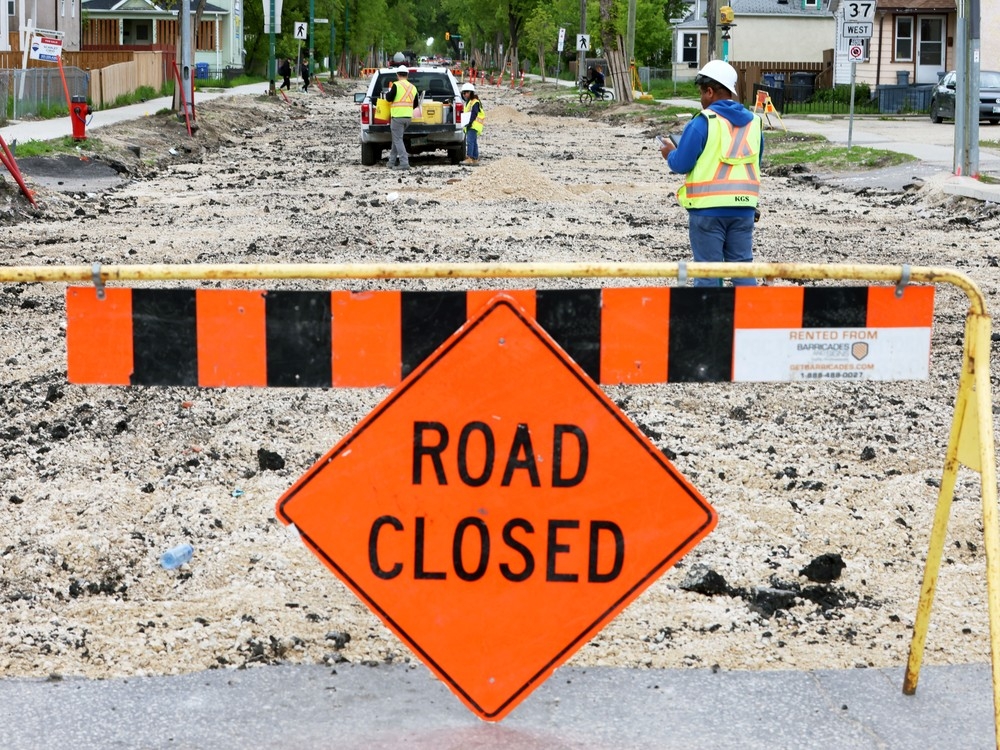As residents of Winnipeg and Manitoba, we often pride ourselves on the beauty of our parks, the vibrancy of our community centres, and the rich infrastructure that supports our daily lives. However, beneath this veneer lies a troubling reality: our government’s tendency to focus on reactive, short-term solutions rather than implementing comprehensive preventative maintenance. This approach, characterized by band-aid fixes and virtue signalling, leaves our infrastructure in a state of gradual decay and ultimately costs us more in the long run.
The case for preventative maintenance is not just strong — it is irrefutable. Consider our roads, the arteries of our city and province. Year after year, we witness the same cycle: potholes form, temporary fixes are applied, and the cycle repeats.

What if, instead, we adopted a proactive approach? Regular inspections, timely repairs, and consistent upkeep could extend our roads’ life, reduce major overhauls’ frequency, and save taxpayers’ money. This principle applies across the board to our pools, community centres, parks, and more. Our public pools, for instance, are more than just recreational facilities — they are community hubs that promote health and well-being.
Yet, they often fall victim to neglect, deferring maintenance until problems become unavoidable. The result? Costly repairs, prolonged closures, and a loss of public trust. If we prioritized regular maintenance, we could ensure these valuable resources remain safe, accessible, and inviting year-round.
The benefits of preventative maintenance extend far beyond infrastructure. They are equally critical when it comes to healthcare. Our healthcare system is predominantly reactive, focusing on emergency medicine rather than preventative care.
This approach is not only inefficient but also unsustainable. Imagine a healthcare system that promotes wellness, encourages regular check-ups, and invests in public health initiatives. By keeping people healthier and out of hospitals, we could alleviate the burden on emergency services, reduce healthcare costs, and improve overall quality of life.
Manitoba’s spending on healthcare is notably less than that of many other provinces. This discrepancy highlights a missed opportunity to invest in preventative measures that could yield significant long-term benefits. Governments have long ignored the advantages of good health management, opting instead to address issues only when they reach a critical stage.
This reactionary stance is costly financially and in terms of public health outcomes. Our urban environment also suffers from a lack of regular maintenance. The city cuts grass and cleans debris from our urban forests less frequently than necessary, creating unsightly and potentially hazardous conditions.
Neglecting our green spaces diminishes their aesthetic and recreational value and undermines their ecological benefits. Regular maintenance of these areas can enhance biodiversity, improve air quality, and provide residents with safe, enjoyable spaces to connect with nature. Community centres, pools, arenas, and other public facilities are vital to our social fabric.
They offer spaces for physical activity, social interaction, and community-building. Yet, they too often fall prey to the same neglect and reactive maintenance cycle. By investing in regular upkeep, we can ensure these facilities continue to serve their intended purposes, fostering stronger, healthier communities.
In the private sector, regular maintenance is standard practice. Homeowners and businesses alike understand the importance of protecting their investments through routine care and timely repairs. Elected officials, however, often fail to adopt this mindset, focusing instead on short-term gains and the next election cycle.
This short-sightedness jeopardizes the long-term well-being of our communities and undermines public trust in government. The necessity of shifting from a reactive to a proactive approach cannot be overstated. Preventative maintenance is not merely a matter of fiscal prudence; it is a fundamental aspect of responsible governance.
By prioritizing regular maintenance, we can safeguard our infrastructure, improve public health, enhance our environment, and strengthen our communities. This requires a cultural shift within government — a commitment to thinking beyond the next election and investing in the future. Implementing a preventative maintenance strategy demands political will, public support, and adequate funding.
It requires elected officials to recognize proactive care’s long-term benefits and allocate resources accordingly. It also calls for greater transparency and accountability in how maintenance decisions are made and executed. The case for preventative maintenance in Winnipeg and Manitoba is clear and compelling.
By adopting a proactive approach to infrastructure, healthcare, and environmental management, we can create a more resilient, sustainable, and prosperous future. It is time for our government to move beyond band-aid solutions and virtue signalling and embrace the principles of preventative maintenance. Our roads, pools, community centres, parks, and, most importantly, our residents deserve nothing less.
— Kevin Klein is a former Tory cabinet minister, a former city councillor and is the President & CEO of Klein Group Ltd. Have thoughts on what’s going on in Winnipeg, Manitoba, Canada or across the world? Send us a letter to the editor at wpgsun.letters@kleinmedia.
ca.



















